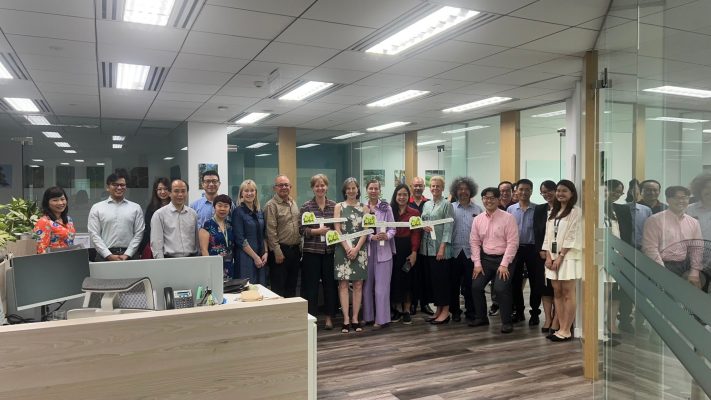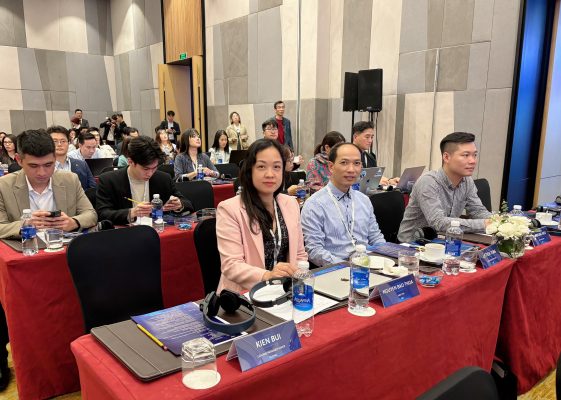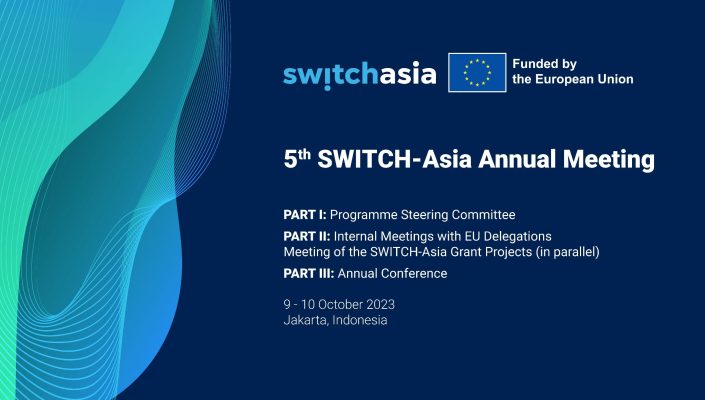HTX Nông nghiệp Dịch vụ Công bằng Ea Kiết

HTX Nông nghiệp Dịch vụ Công bằng Ea Kiết tiền thân là Tổ Liên kết Thương mại Công bằng Eakiết. Được thành lập vào tháng 10/2008 đến tháng 3/2011 Tổ liên kết chuyển thành HTX. Bước đầu mới thành lập HTX chỉ có 48 thành viên tham gia, đến nay HTX có 97 thành viên trong đó có 4 thành viên là người đồng bào dân tộc thiếu số, nữ 44 thành viên, nam 53 thành viên. Diện tích 183 ha, sản lượng 722 tấn đạt chương nhận Fairtrade “FLO”.
HTX Nông nghiệp Dịch vụ Công bằng Ea Kiết
Địa chỉ: Thôn 1, xã Eakiết, huyện CưM’gar, tỉnh Đắk Lắk
Cơ quan tài trợ: Liên minh Châu Âu (EU)
Cơ quan thực hiện: Viện Nghiên cứu và Phát triển Ngành nghề nông thôn Việt Nam (VIRI)
Thời gian thực hiện: Năm 2014 – năm 2017
HTX Nông nghiệp Dịch vụ Công bằng Ea Kiết tiền thân là Tổ Liên kết Thương mại Công bằng Eakiết. Được thành lập vào tháng 10/2008 đến tháng 3/2011 Tổ liên kết chuyển thành HTX. Bước đầu mới thành lập HTX chỉ có 48 thành viên tham gia, đến nay HTX có 97 thành viên trong đó có 4 thành viên là người đồng bào dân tộc thiếu số, nữ 44 thành viên, nam 53 thành viên. Diện tích 183 ha, sản lượng 722 tấn đạt chương nhận Fairtrade “FLO”.
1. Qua quá trình hoạt động sản xuất cà phê bền vững ( FLO) Hợp tác xã đã đạt được những thành công đánh kể sau:
- Về xã hội: Thúc đẩy phát triển xã hội và kinh tế cho hộ sản xuất nhỏ. Dân chủ, không phân biệt đối xử đối với các nhóm thành phần kinh tế trong xã hội, minh bạch trong kinh tế tạo ra sản tốt nhất cho xã hội. Hỗ trợ chính quyền địa phương thực hiện thành công mục tiêu xây dựng nông thôn mới. Hỗ trợ xây dựng nhà đại đoàn kết… trích một phần đầu tư nâng cao chất lượng sản phẩm. Tạo công ăn việc làm cho người lao động cũng như con em thành viên trong HTX, tăng cường mối đoàn kết trong cộng đồng.
- Về mặt kinh tế: Nâng cao thu nhập, cải thiện đời sống cho thành viên hướng tới có tích lũy và phát triển bền vững.
- Về môi trường: Phải đảm bảo tính bền vững và duy trì sự tồn tại phát triển của cây trồng trong môi trường tự nhiên, môi trường xanh sạch đẹp, được hướng dẫn, tập huấn về cách chăm sóc, bảo vệ vườn cây như: quản lý dịch hại tổng hợp, nắm bắt và theo dõi tình hình dịch hại, các biện pháp trong việc kiểm soát và phòng ngừa dịch hại. Sử dụng thuốc bảo vệ thực vật đúng quy định. Trồng cây che bóng, chắn gió và tạo thảm thực vật chống xói mòn, bảo vệ nguồn nước.…biết cách quản lý rác thải. Không được săn bắt nuôi nhốt hoặc buôn bán động vật hoang dã dưới mọi hình thức. Phòng chống cháy nổ, nói không với sản phẩm biến đổi gen.
- Về điều kiện làm việc: Luôn đảm bảo điều kiện làm việc an toàn và đảm bảo sức khỏe cho người lao động, không được có hành vi kỳ thị, đối xử, phân biệt, chủng tộc, màu da, giới tính… không cưỡng bức lao động. Khi tuyển dụng công nhân không được thuê trẻ em dưới 15 tuổi để làm việc. Không được ảnh hưởng xấu đến việc đi học hoặc sự phát triển về xã hội, tinh thần, thể xác và trí tuệ của những công nhân trẻ tuổi. Đặc biệt đề cao và bảo vệ quyền lợi của người phụ nữ và trẻ em.
2. Hiệu quả về kinh tế và xã hội:
- Một là: Giá bán sản phẩm cà phê được ổn định ,thường cao hơn thị trường từ 2.500đ/kg – 3.000đ/kg. Đời sống hộ thành viên được năng lên từ 15 – 20 triệu đồng/năm.
- Hai là: Hàng năm các hộ thành viên được tập huấn về khoa học kỹ thuật trồng và chăm sóc cà phê. Giúp thành viên nhận biết và phát hiện các loại sâu bệnh gây hại trên cây cà phê để phòng trừ một cách có hiệu quả nhất. Hướng dẫn cách ghép chồi cà phê, ủ võ cà phê bằng chế phẩm sinh học để giảm chi phí đầu vào….. tăng lợi nhuận.
- Ba là: Biết cách hạch toán kinh tế thông việc ghi chép sổ nông hộ, hàng năm được HTX mua tặng thẻ BHYT khám chữa bệnh, được HTX thăm hỏi lúc đau ốm, hoạn nạn, tặng quà dịp lễ tết mổi suất trị giá 800.000 đồng. Con em thành viên trong HTX có thành tích cao trong học tập được HTX trao thưởng học sinh đạt giỏi 300.000đ/suất, đạt loại khá 200.000đ/suất. Được tham quan học hỏi kinh nghiệm của các đơn vị bạn.
- Bốn là: Đối với Hợp tác xã hàng năm thu về một nguồn lợi đáng kể từ việc bán sản phẩm cà phê có chứng nhận. Do đó đã góp phần cùng chính quyền địa phương trong việc xây dựng nông thôn mới như làm đường giao thông nông trên địa bàn xã. Đến nay HTX đã đầu tư hỗ trợ làm được 4 km đường. Trong đó: 3 km đường bê tông tại thôn 2, 6, 9 và 1km đường cấp phối tại thôn 11. Tổng trị giá hơn 2 tỷ đồng, hỗ trợ thôn 5, 8 lắp đặt hệ thống đèn chiếu sáng công cộng để đảm an ninh trật tự. Hỗ trợ chính quyền mua xe thu gom rác thải tại trung tâm xã 40 triệu đồng, ủng hộ chương trình biển đảo 10 triệu đồng, người nghèo ăn tết mỗi năm 5 triệu đồng, Chương trình mổ mắt nhân đạo cho người trên địa bàn tỉnh 5 triệu đồng, xây dựng nhà đại đoàn kết cho đồng bào dân tộc thiểu số tại chỗ 40 triệu đồng. Ủng các phong trào văn hóa văn nghệ, thể dục thể thao do xã nhà tổ chức hàng chục triệu đồng. Hàng năm đóng góp đầy đủ các quỹ như phòng chống bão lụt, an ninh quốc phòng tại địa phương.





